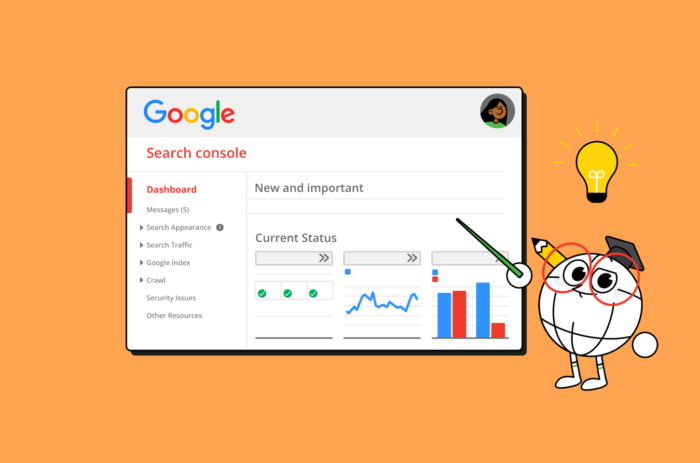So you dove into Google Search Console (GSC) after reading “An Introduction to Google Search Console for Local Businesses,” or you took a look under the hood and thought, “That is just way too much search data. How can I make sense of it all?”
Don’t worry, you’re not alone. That was one of the reasons I created a Looker Studio report to help break down and visualize the data in easy-to-understand chunks.
The search data in GSC can be overwhelming, especially for many business owners venturing into GSC for the first time. But after following the steps in our first GSC post, we can now show you how to take a slightly deeper look at the search data from a more local perspective. (Not read the first post but eager to get advanced with GSC? No problem! Let’s dive in.)
In this guide, I’ll show you how you can filter through the search data in Google Search Console to help you with:
- Understanding your visitor’s local intent
- Using GSC to create ‘Frequently Asked Questions’ content on your site
- Gathering ideas for Google Business Profile posts
- Posting your own GBP Q&A from questions asked by users
- Using the data to build additional content or expand on what the user may want to know more about
- Tracking your UTM tagging from your GBP (Google Business Profile)
Filtering the Search Data Using Regex
We’re mostly going to use something called ‘Regular Expressions’ (or ‘regex’) to filter the search data.
What is regex?
Imagine regex as a special kind of search tool within Search Console. It lets you zoom in on specific patterns in your website data, helping you uncover hidden insights about how people find your business online.
Think of regex as a special search language that you write to tell Search Console exactly what you’re looking for. It’s like giving it a set of clear instructions to follow.
In regex, instead of regular words, you use a few special symbols and characters to create these instructions. It might look a bit strange at first, but it’s not too hard to learn.
When you apply a regex pattern, Search Console goes through your data and only shows you the parts that match your instructions. It’s like filtering out the clutter and zooming in on the important stuff.
For example, if we want to find all queries that contain the word “local” or “near me”, it would look something like this:
(?i)\b(?:local|near me)\b
What does it mean?
(?i): Case-insensitive flag, ensuring matches regardless of capitalization\b: Word boundary, ensuring the words are whole words, not parts of other words(?:...): Non-capturing group, grouping the words without creating a capture grouplocal|near me: Alternatives within the group, matching any of the specified words\b: Another word boundary to complete the word match
Example Matches
If we looked at the search console data for a local restaurant we might see queries such as:
- “find local restaurants”
- “restaurant near me”
Note:
- This regex finds any of the specified words as whole words anywhere within the query.
- It’s case-insensitive, so capitalization doesn’t matter.
- Word boundaries ensure accurate matching.
- The non-capturing group is used for efficiency and clarity.
We are going to use the example above later in this post but let’s start with something a little easier.
Let’s start with your local town/city and state
It’s time to roll up your sleeves and dive into the search data. We’ll start easy and then increase the complexity of our regex filters. We’ll start by looking at how to filter the results just to show queries that contain just your town or city.
The regex would look like this:
(?i)\b cityname \b
Just copy the above example and replace ‘cityname’ with the name of your town or city, but first, let me show you how and where we’re going to add it.
Log into your GSC dashboard, and under ‘Performance’ choose ‘Search results’.
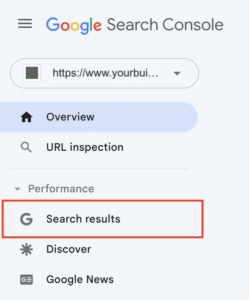
Now, above the main table of search data, we’re going to edit the settings and apply our first filter.
Select ‘+ New’ and then ‘Query…’
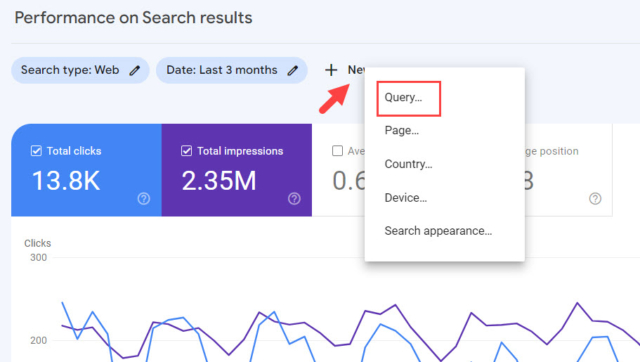
Select ‘Custom (regex)’

We now want to copy the regex example:
(?i)\b cityname \b
And paste it as follows:
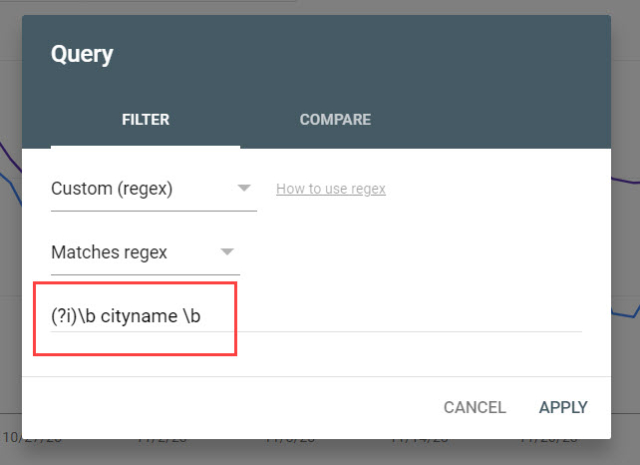
You will have replaced cityname with the name of your town or city. Now just click “APPLY”.
Your ‘Queries’ table should now only contain the top queries containing the name of your town/city. Look at the search data and see what your customers are searching for that includes the name of your town. It can be very revealing.
Well done, you’ve done your first filter using regex! Now let’s build on this.
We’re now going to filter the search data by town/city and state. For example, my next example is going to use Atlanta, which is in the state of Georgia, which may also be written as ‘GA’.
My regex would look something like this:
(?i)\b(?: atlanta|georgia|ga )\b
Note the use of the pipe ( | ) – the OR operator. Using this means that any of the three options, ‘atlanta’, ‘georgia’, or ‘ga’, can be matched.
Now my search data will list any query containing the words ‘Atlanta’, ‘Georgia’, or ‘GA’.
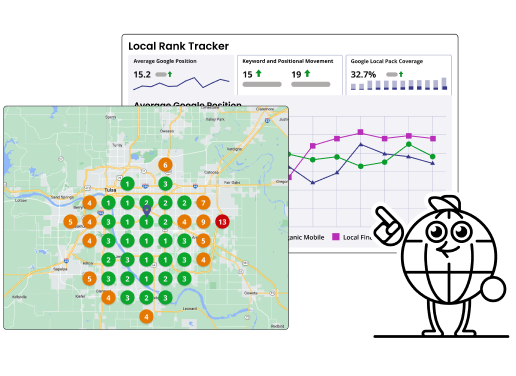
Put Your Rankings on the Map. Literally.
Track and improve rankings with BrightLocal
Local Intent
In our very first regex example, we used this example:
(?i)\b(?:local|near me)\b
Now let’s expand on this just a little and include a couple more variations:
(?i)\b(?: local|nearby|near me|best in )\b

Example matches:
- “Find local restaurants”
- “Best pizza nearby”
- “Grocery stores near me”
- “Best coffee shops in Atlanta”
Context matters. Analyze queries within your specific industry and location. Intent can be implicit or explicit. Not all local queries contain obvious location terms.
Tip: Increase the date range from 3 months to at least 12 months. This will increase the amount of query search data you are filtering and give you more insights.


What questions are your users asking?
Have you ever wanted to know what questions your potential customers are asking to find your product or service? Well, you can do so by using the simple regex snippet below. Just copy and paste the following, as we have done before.
(?i)\b( what|where|when|why|do|who|how|can|which|will )\b

You can now use the results from your search data on your website and GBP to:
- Create Frequently Asked Question (FAQ) content on your site
- Discover ideas for Google Business Profile posts
- Post your own GBP Q&A from questions asked by users
- Build additional content or expand on what the user may want to know about
Tip: You can always just trim down the regex and start with the what, where, when, and why.
(?i)\b( what|where|when|why )\b
You can adapt any of these patterns to include additional words beyond common question words. For example:
Commercial Intent:
(?i)\b( best|top|vs|review )\b
Transactional Intent:
(?i)\b( buy|cheap|price|purchase|order )\b
Question and Keyword
What if I wanted to know what questions were being asked that contained a particular keyword?
For example, I have a personal injury lawyer and I want to know what questions are being asked concerning trucks.
The regex for this would be:
(?i)\b( what|where|when|why|do|who|how|can|which|will )\b *\b truck \b
Example Questions:
- what personality traits do truck drivers have
- can truck drivers sleep on the side of the road
- why truck accidents are not like car accidents
Just change the word ‘truck’ for the service or product that relates to your business.
Run a Local SEO Audit in Minutes
Analyze 300+ key data points in one go
Company Name Tracking
With this regex snippet, you can gain valuable insights into your company’s online presence. By tracking trends in brand awareness, identifying top-performing pages, and even uncovering potential issues, you can use this information to improve your content, SEO strategies, and overall brand visibility.
Pinpoint your company name variations. List all possible ways people might search for your company:
- Full company name, e.g. “Amazing Products Inc”
- Common abbreviations, e.g. “Amazing Products”
- Potential misspellings, e.g. “Amazing Products”
- Variations with modifiers, e.g. “Amazing Products reviews,” “Amazing Products near me”
(?i)(\b Amazing Products Inc \b|\b Amazing Products \b|\b Amazing Products \b|\b Amazing Products near me \b)
Replace placeholders with your actual company name variations.
(?i)(\b YOUR_COMPANY_NAME \b|\b ABBREVIATION \b|\b MISSPELLING \b|\b COMPANY_NAME modifier \b)
Remember to monitor the results and adjust the pattern as needed, based on your specific needs and search trends.
UTM Tagging
If you’ve been being a good local SEO, then you’ve been using UTM tagging within your GBP for many years now, for everything from your website links to GBP posts. If you haven’t, then read Claire’s guide on UTM Tagging for Google Business Profiles and fix that right away!
You can see your UTM data quite easily within your GSC search data. However, because UTMs are associated with the page URL, we have to apply the regex to ‘Page…’ and not ‘Query…’.
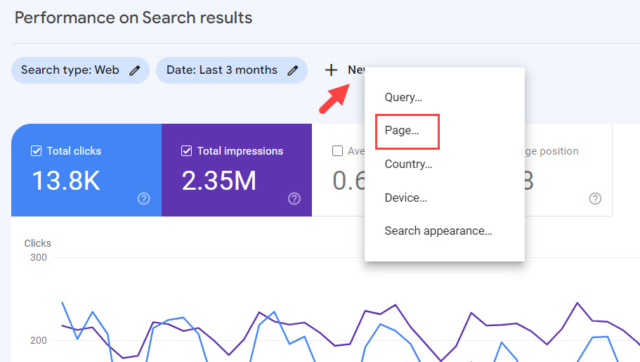

…and paste, as before:

\?(?:utm_source|utm_medium|utm_campaign|utm_term|utm_content)=[^&]+
Then, switch between the ‘Pages’ tab to see the top pages that are performing, and then switch to the ‘Queries’ tab to see which queries are producing clicks from your GBP.
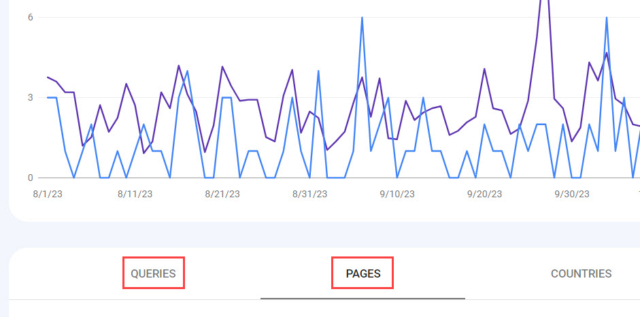
Tip: GSC and basic exports are limited to displaying a maximum of 1,000 rows of data per report (property). This can be frustrating, especially for large websites or specific scenarios where you need to analyze more data points.
A workaround to get more data is to create more properties for the same website. In the example below, I’ve created six properties for different sections of the site. This way we’ll get 1,000 rows of data for each property and not just 1,000 rows for the whole domain. Verification is easy once the main domain has been verified.

Conclusion
For local businesses, mastering regex can unlock a hidden vault of Google search data about your customers. But like any powerful tool, precision and ongoing adjustments are key to keeping up with evolving marketing goals and staying ahead of the game.
I hope these regex examples prove valuable. Should you have any questions, please reach out to me on X (formerly Twitter).
